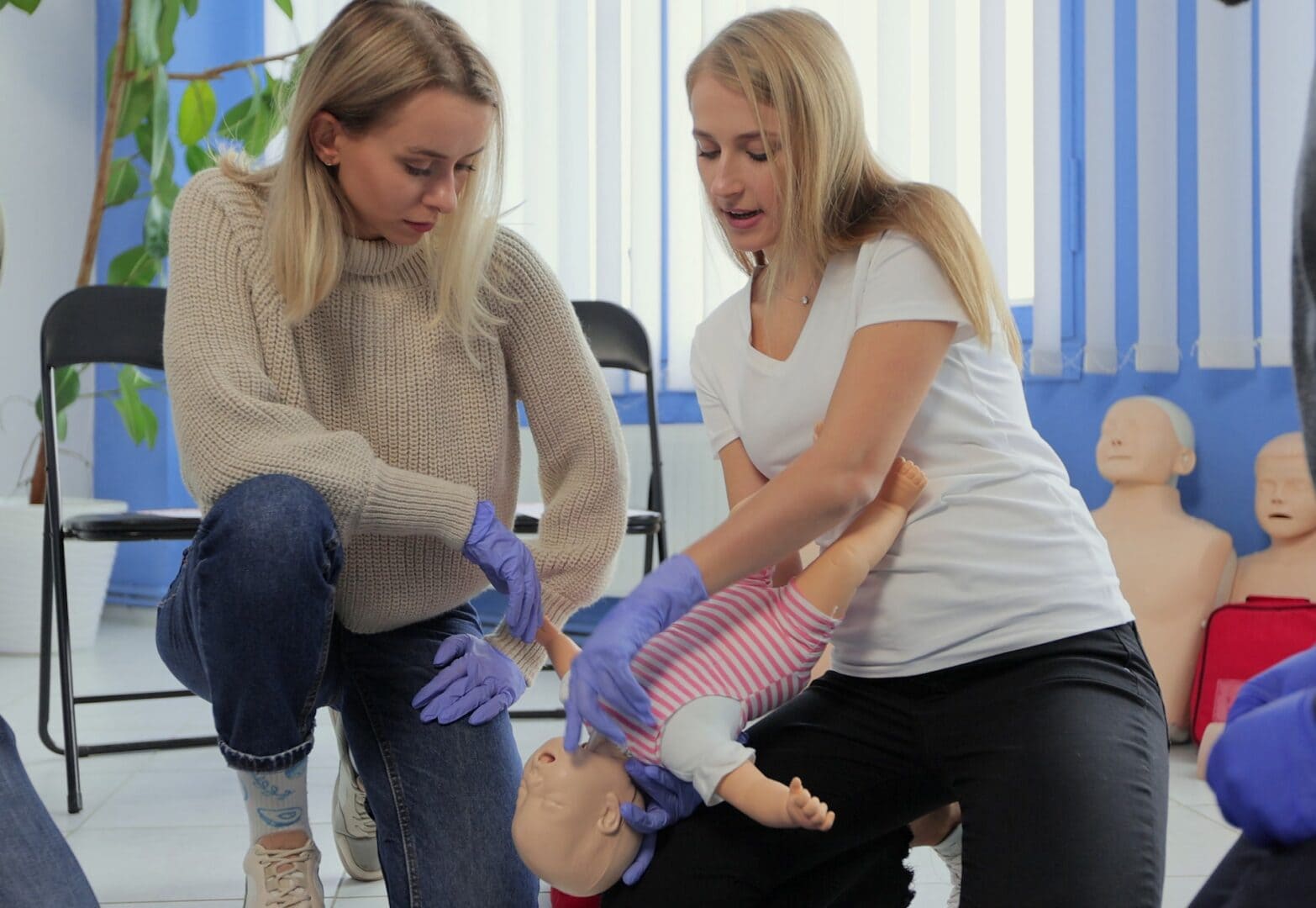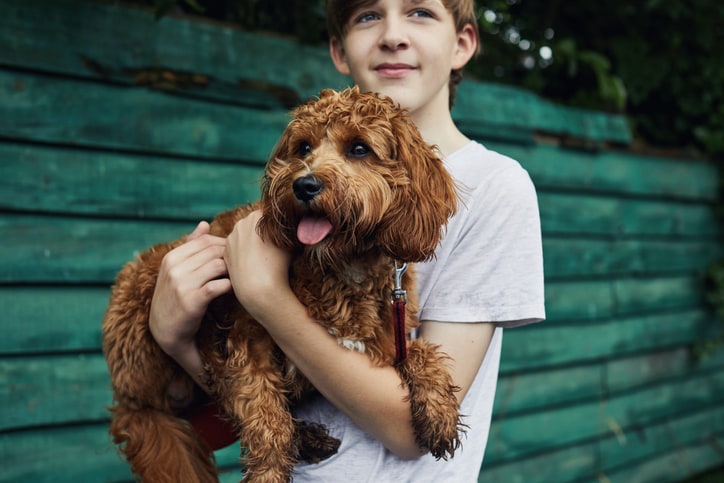Perhaps you don’t have a lot of babysitting experience yet but want to land more babysitting jobs. Or maybe you want to be able to command a higher rate of pay. You may just want to be a better babysitter and be prepared for the many unexpected scenarios that arise when children are involved. Regardless of the reason, taking babysitting training and safety courses or classes is always a good idea. Parents aren’t as concerned with how you’re going to entertain their kids as they are with how responsible you are.
Special certifications, training and even a background check can give parents peace of mind that their children will be in safe hands while they’re away, and they definitely take notice when babysitters have extra skills and qualifications under their belts. It makes sense: keeping children safe is your number one job as a babysitter, and your expertise in this area is highly valued by primary caregivers.
The benefit to you is that you’ll stand out among other babysitters, potentially landing more jobs and higher pay.
It’s recommended that all babysitters create a CV that showcases their experience, qualifications and training. Here are some great training courses to add to your babysitter CV.
Essential babysitting training and certifications
Most parents want to entrust their children to babysitters trained in first aid, CPR and childcare skills. Care.com’s research indicates that the majority of families are willing to pay a babysitter more if they have some kind of safety training. Thankfully, you can easily—and fairly affordably—take courses to prepare you for an emergency.
First aid and CPR/AED
A course in adult and paediatric first aid and CPR/AED ensures you’re prepared if an emergency occurs in the home. As such, this training is beneficial to anyone who wishes to work with children.
First aid and CPR/AED are sometimes taught in separate courses but may also be combined into one.
- First aid training preps you for common crises that can happen with kids. You’ll learn how to handle burns, bleeding, asthma emergencies and other problems.
- CPR, or cardiopulmonary resuscitation, is used to rescue someone who has a cardiac or breathing emergency. It’s important to note that proper CPR is different for infants and children than it is for adults, and knowing both is important for anyone responsible for another person’s safety.
- AED stands for automatic externalised defibrillator. A course that includes AED teaches how to use a defibrillator device in the event of a heart attack. Defibrillators are often available in public spaces and can help a heart return to its regular rhythm. While it might seem unlikely you’ll need to use this skill while babysitting, it could save a life if you have it.
You can find courses in first aid, CPR and AED through national organisations such as the Red Cross or the British Heart Foundation.
Getting CPR and first aid training certification looks great to employers, but it’s not just a boost to your CV: it’ll also help you feel prepared if you ever face a wounded or unconscious child.
Basic babysitter training
It’s unsurprising that most parents want to hire a babysitter who knows the dos and don’ts of basic childcare. For those just starting out in their careers working with children, taking a babysitting course is a great way to learn some of the fundamentals. Specialised courses can teach you the skills and know-how you might not realise you’ll need, such as age-specific activities and safety information, how to handle common behaviours and hands-on practice in basic baby care, like changing nappies.
These skills will give you confidence, so that when you walk into the home where you’ll be working you already know some things that may happen and how to handle them.
Many organisations run comprehensive classes that review everything a babysitter needs to know, from how to handle bedtime to communicating with parents. You may be able to find local courses at a nearby hospital or library. The NSPCC also runs introductory courses for anyone working with children.
Many learning institutions such as local higher education colleges offer babysitting certificates. Typically, these entry-level qualifications are equivalent to Level 1 or 2 NVQ/City & Guilds.
Next-level babysitting training and certifications
If you want to take your babysitting business beyond caring for the children of family members, friends and neighbours—for example, you want to list with an agency, get high-profile clients, or aspire to be a nanny or run a childminding business one day—you may want to take things to the next level. Here are some of those next-level opportunities to consider.
Background check
Background checks can help reveal a person’s criminal history, and most parents find great comfort and peace of mind knowing that they’ve done everything possible to keep their family safe. That’s why it’s a bonus for you to get a background check run in advance that you can share with them. It helps demonstrate that you’re honest and trustworthy. The most common background check in the UK is the Disclosure and Barring Service (DBS) check.
Water safety and lifeguard training
Getting lifeguard training can be a good idea if you’re in an area with a lot of pools or you’re taking the child you’re caring for to the pool, whether there’s a lifeguard there or not.
Lots of accidents can happen around water, and babysitters should know how to react in an emergency. The Royal Life Saving Society (RLSS) offers a National Pool Lifeguard Qualification, which can be completed at hundreds of leisure centres, health clubs and educational establishments around the UK.
Defensive driver training
If you’re going to be picking the kids up from school or chauffeuring them to activities and play dates, you may want to sign up for a defensive driving course that will teach you how to be a better driver and avoid accidents caused by common road hazards. You may even get an insurance discount once you complete the course. You’ll find courses in defensive driving at driving schools throughout the UK.
Special needs training
Parents of children with special needs are particularly appreciative of babysitters who have the specific skillsets and training to work with them. This is where experience in special education could be a huge asset. Check with your local education department to see what types of certificates and licences are available. For example, if you already have a teaching degree, you may be able to get an additional certificate in teaching special education and/or working with students with disabilities.
Newborn care training
If you want to care for infants, consider taking a course in newborn care, such as those from Babyem. These courses are designed for different stages of childcare development, covering topics such as infant nutrition, premature babies and sleep training. You might decide to follow this route if you want to become a newborn care specialist, nanny, infant sleep specialist, postpartum doula or childminder.
Preschool or elementary education training
Education pays off – and the rewards usually correspond to the level of training. So while parents may be willing to pay a babysitter more if they have the same level of child care certification that’s required of nursery school teachers, they’re even more likely to do so if their sitter has an early education degree.
If you want to start your own childminding business or become a teacher, you’ll eventually need to pursue an officially recognised child care certification, teaching certification or even a degree in education. The bonus is that, while you’re in school or student teaching, you may get the attention of parents looking for a sitter with a passion for kids, education in child development and special certification.
Pet care training
Interested in adding pet sitting or dog walking to your CV? A pet care training course will help you learn pet care basics, which may impress babysitting clients who also have pets. Find a pet sitting course through the NARPSUK (National Association of Pet Sitters and Dog Walkers) or consider completing an Animal Care certification with City & Guilds.
Cooking classes
Who wouldn’t love to have a babysitter who can also cook? If you’re not exactly Delia Smith, a few classes with a local chef, a short course at your nearest catering college or online cookery lessons could make you more confident in the kitchen—a huge bonus if you need to occasionally whip up meals during babysitting gigs.

